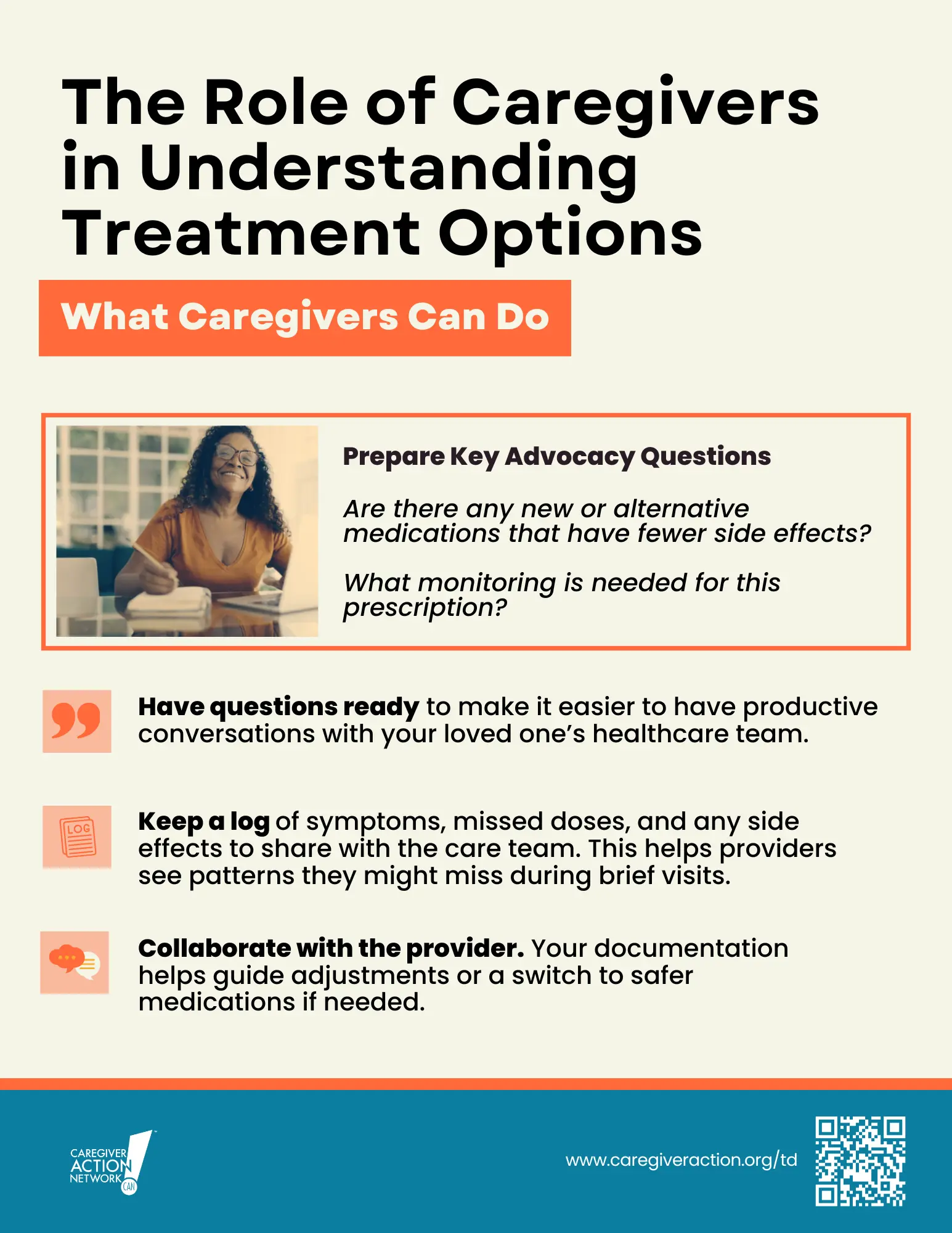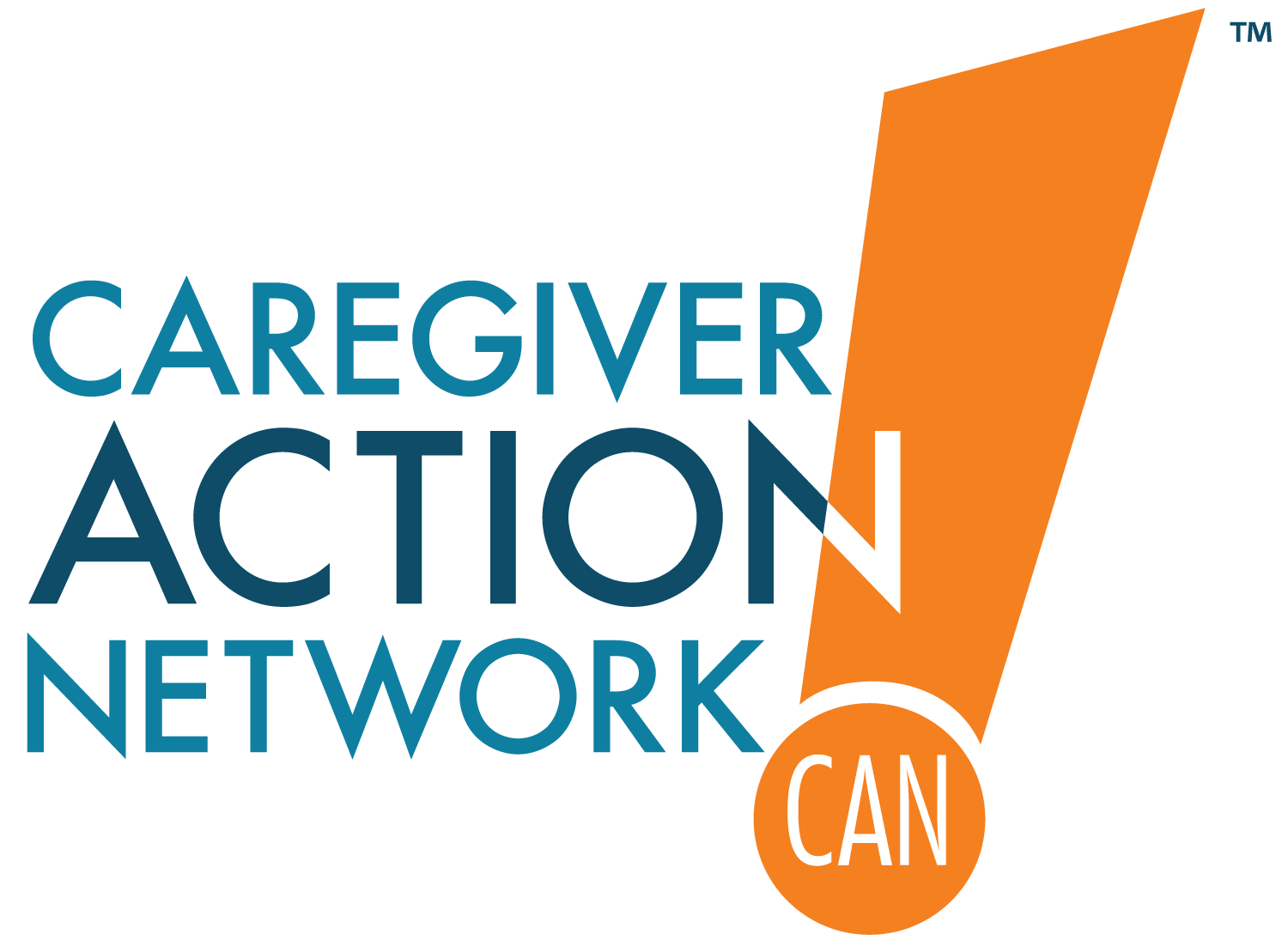Caregivers play a vital role in ensuring their loved ones with Tardive Dyskinesia receive the safest and most effective treatment by acting as advocates, coordinators, observers, and emotional supports. Their involvement can significantly influence treatment outcomes.
Caregivers are often the first ones to notice symptoms. Many individuals with TD also have complex mental health or neurological conditions that affect their ability to communicate. Caregivers can help by providing accurate health histories, asking informed questions about treatment risks, side effects, and alternatives, and ensuring shared decision-making that respects their loved one’s values and needs.
Caregivers can also ask about newer or lower-risk psychiatric medications. Some medications may reduce long-term risks such as TD. Mentioning an interest in updated treatments can prompt providers to consider safer alternatives for your loved one.

![02_TD-Tool-CanDo[Sp]](https://www.caregiveraction.org/wp-content/uploads/2025/09/02_TD-Tool-CanDoSp-1-pdf.jpg)
